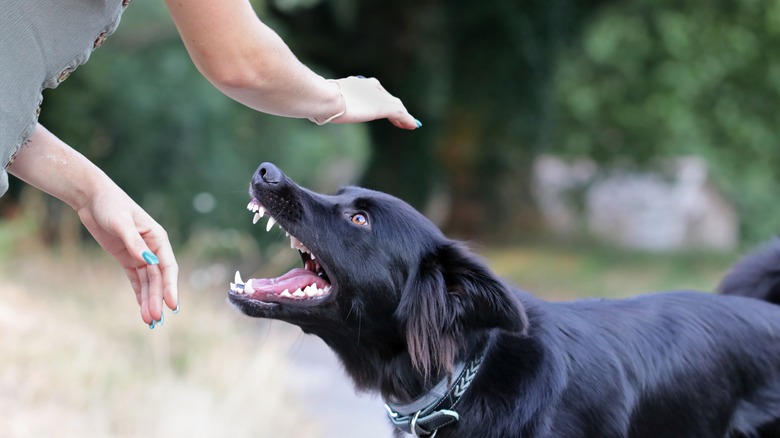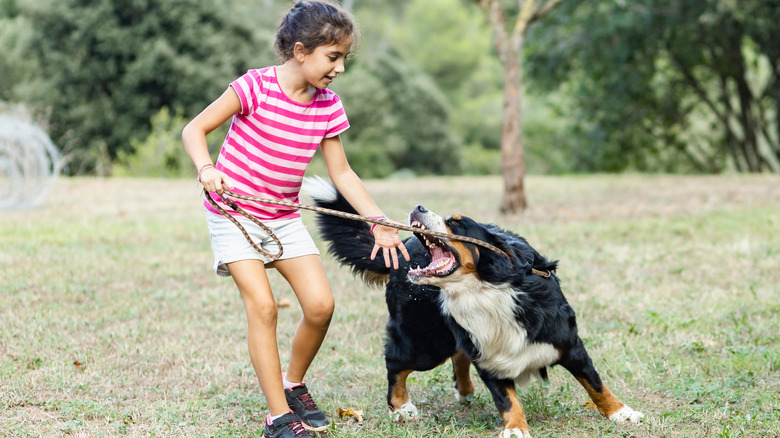The First Thing You Should Do After Getting Bit By A Dog
According to the American Veterinary Medical Association (AVMA), nearly one in five people in the U.S. require medical attention as a result of a dog bite. With just shy of 5 million people suffering dog bites each year, it's important to know how to protect yourself and respond in these instances.
Regardless of size or breed, a dog's teeth can cause significant damage. Board-certified specialist in veterinary dentistry, Dr. Donald Beebe, explains via PetMD that the average adult dog has 42 teeth designed for grasping, pulling, and slicing. Because of this, a dog bite can cause the skin to break, according to experts at the Cleveland Clinic.
"The No. 1 concern with these bites is infection. You may need hospitalization and require intravenous antibiotics. You should always see a primary care provider if you're bitten," Dr. Stephen Sayles III, emergency medicine physician, tells the Cleveland Clinic. With time being of the essence, Dr. Sayles III stresses that those bitten should seek medical attention no more than eight hours after the fact. Immediate medical care should be sought for bites to the face or hands (via Verywell Health).
Ways to reduce the risk of dog bites
If a dog has bitten you, you'll want to apply pressure to the area with a clean towel to contain the bleeding (via WebMD). Then, thoroughly wash the wound with warm, soapy water for five to ten minutes, according to Cleveland Clinic. Experts at Verywell Health encourage cleaning the inside of the wound as well, as long as you're able to thoroughly rinse all of the soap out of the opening. Apply an antibiotic ointment and a sterile bandage, changing it daily to protect against infection.
If you need to seek medical care, you'll want to provide the doctor with as much information as possible regarding the incident, including the dog's health and vaccination status and if the attack was provoked (via WebMD). Most emergency dog bite cases are seen in young children from the family dog, often due to accidental play. According to a 2019 study conducted by The Ohio State University Wexner Medical Center, children should maintain distance from a dog resting or eating, avoid playing in kennels, and ask for help from an adult if the dog takes away a toy.

